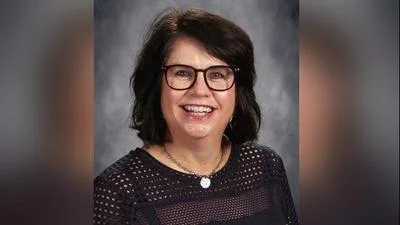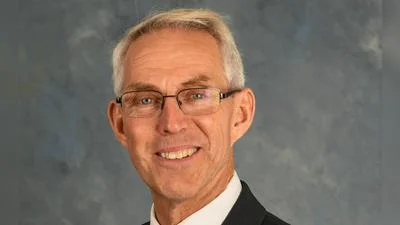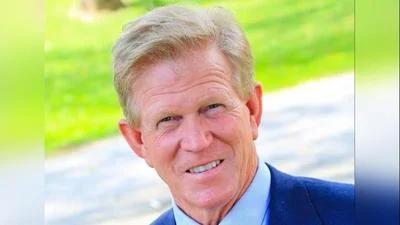Illinois State Senate District 55 issued the following announcement on Oct. 25.
An ambitious multi-year, multi-billion-dollar plan for road and bridge construction was launched during the week, while the battle against opioid deaths continues, and the state improves educational opportunities for both students and teachers.
Meanwhile, final preparations are being made for the fall Veto Session that starts Oct. 28.
Billions for roads and bridges
The Illinois Department of Transportation (IDOT) took the wraps off a multi-year, $23.5 billion transportation construction program Oct. 21 that proposes to spend more than $3.7 billion in the current fiscal year alone.
It's the start of a significant and overdue investment in the state's deteriorating infrastructure. The plan includes improvements, new construction, and repairs to more than 4,200 miles of roadways and nearly 700 bridges throughout the state.
It's been about 10 years since the last significant capital construction program, and it shows, according to a 2018 study by the Illinois Economic Policy Institute. That report concluded the state’s backlog of deteriorating roadway miles increased from 1,700 in 2001 to 3,300 in 2015, and 20 percent of state roads were rated in “poor” condition compared to only eight percent in 2001.
Adding to the backlog problem were years of tax dollars being swept from the Road Fund. Additionally, increased costs of maintenance and scarce revenue left wear-and-tear to our roads and bridges unfixed.
Faced with these facts, the General Assembly took bipartisan action, creating a plan that includes federal and local match dollars, bonding, and other sources of revenue to pay for the long-overdue work.
Taxpayers can be confident when they fill up their gas tanks, as motor fuel taxes are going straight toward paying for transportation-related projects. Thanks to the 2016 Lock Box Constitutional Amendment, Springfield can no longer divert that money to other purposes.
Investing in transportation infrastructure will help rebuild Illinois, attract businesses, create jobs, and revitalize the economy.
Combating Illinois’ opioid crisis
For nearly two years now, Illinois has been working to implement the State of Illinois Opioid Action Plan (SOAP) to reduce the number of opioid overdose deaths. The Senate's Special Committee on Opioid Crisis Abatement learned during a hearing Oct. 21 that there is some improvement.
Jenny Epstein, Director of Strategic Opioid Initiatives at the Illinois Department of Public Health, told Senators that deaths from opioid overdoses decreased in 2018 for the first time in five years, from 2,202 in 2017 to 2,167 last year.
Epstein said there are three "pillars" to the SOAP program: Prevention, Treatment, and Response. Prevention includes safer prescribing and dispensing of prescription opioids and better access to information about the effects of opioid addiction. Treatment involves improved access to care for the addicted. The Response part of the plan involves increasing the number of first responders and community members who are trained and have access to naloxone, also known by the generic name of Narcan, an effective antidote that can immediately reverse the effects of an overdose.
The effort to address opioid addiction was begun in 2017 by then-Governor Bruce Rauner, who issued an Executive Order creating the Opioid Prevention and Intervention Task Force, which was asked to develop, approve, and implement a comprehensive Opioid Action Plan.
The latest edition of the SOAP report is available at http://www.dph.illinois.gov/sites/default/files/publications/final-soap-implementation-report.pdf
Illinois offers duel credit endorsement for teachers, and students benefit too
In an effort to support the rapidly growing number of students earning college credit while in high school, the state is now offering opportunities for qualified high school dual credit teachers to seek a special endorsement on their Professional Educator License.
The Illinois Board of Higher Education (IBHE), the Illinois State Board of Education (ISBE), and the Illinois Community College Board (ICCB) announced Oct. 23 the endorsement will help meet the growing demand for dual credit teachers as more and more students seek to earn college credit while in high school.
Dual credit courses allow academically qualified high school students to enroll in a college-level course, and upon successful course completion, earn both college credit and high school credit at the same time.
According to the ISBE, participation in dual credit courses is growing. Illinois students in the 10th through 12th grades took more than 165,000 dual credit courses from 2016 to 2018. Enrollment in dual credit courses also increased by more than 3,000 courses between the 2016-17 and 2017-18 school years.
Veto Session 2019
The first week of the two-week fall Veto Session is set for Oct. 28-30. There are a total of eight legislative measures, which received total or partial vetoes by the Governor following the spring legislative session. Issues include the Affordable Care Act, education, and gambling.
The second week of Veto Session is scheduled for Nov. 12-14.
Original source can be found here.






 Alerts Sign-up
Alerts Sign-up